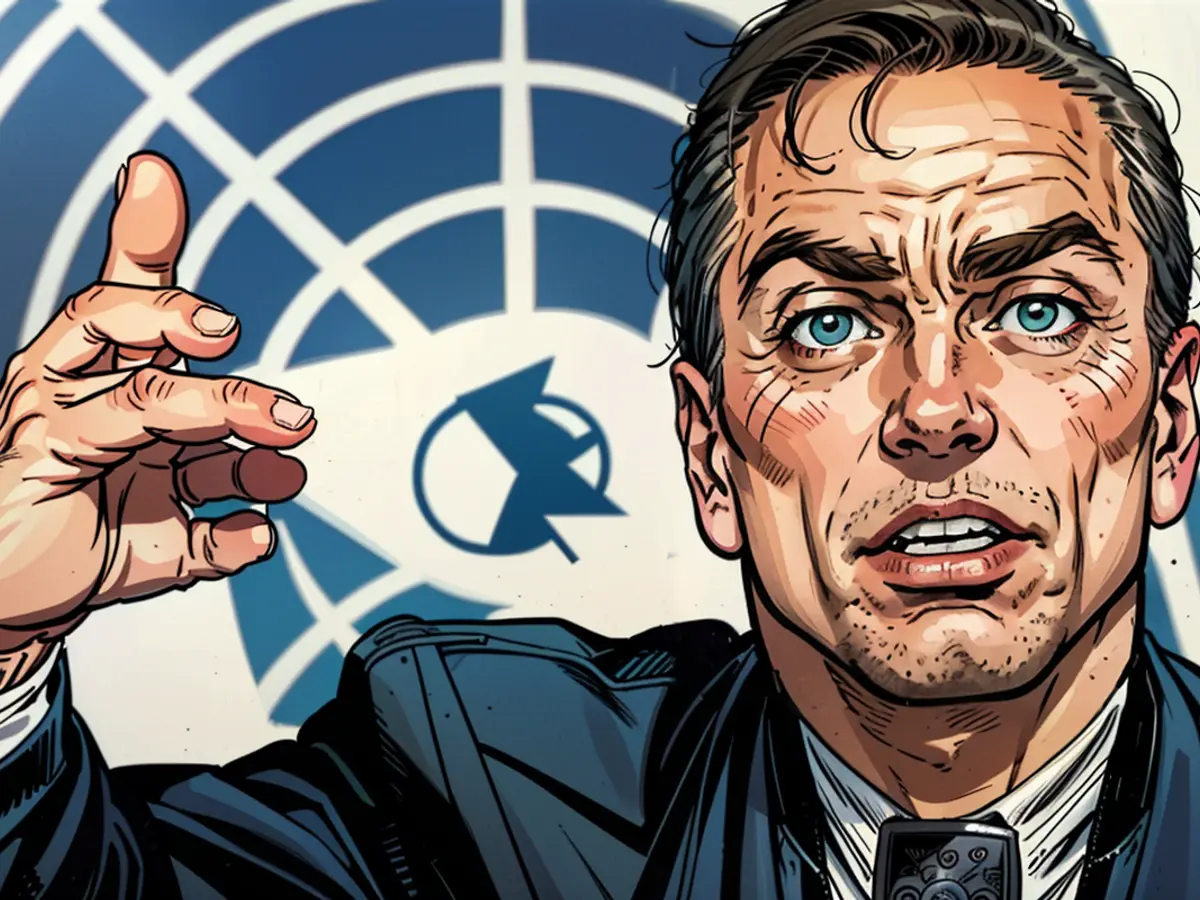The ex-environment minister passes away. - Klaus Töpfer Transitions from Environmental Leadership to Sustainability Advocate
Klaus Töpfer, a well-known figure in the world of environmental activism, has passed away at the age of 85. He was commonly referred to as "Mr. Environment" and "Mr. Sustainability" due to his lifelong efforts in preserving the planet. Töpfer gained recognition after taking a daring swim in the Rhine River in 1988, which drew attention to his cause.
Before becoming the federal environmental minister in 1987, Töpfer served in the same position in Rhineland-Palatinate. He was in office until 1994, a time when the government, led by Chancellor Helmut Kohl (CDU), created a separate ministry for environmental protection, including nuclear reactor safety. Töpfer was the man who shaped this role and made it what it is today. Previously, another person, Walter Wallmann, had held the position but only lasted for a year in the department that was established in 1986.
In 1988, Töpfer called for a world without nuclear energy and decreasing use of fossil fuels. While these goals seemed far-fetched back then, he would return to negotiate social conflicts involving the search for a nuclear waste repository in Germany in his later years. He resigned from the committee in the spring of 2020.
Born in Silesia in 1938, Töpfer and his family moved to Höxter, Westphalia, after the war. They were poor, which motivated the young man to reach new heights. He went on to achieve a high school diploma, attend university, complete a doctoral thesis, become a professor, and eventually join the CDU as a politician.
Töpfer achieved many things throughout his life but never aspired to be Minister President in the Saarland or Federal President. Instead, his focus remained on environmental issues, even when the position was taken away from him by Angela Merkel in 1994. He then worked on preparing the relocation of the Bundestag and parts of the federal government from Bonn to Berlin. In 1996, as the Minister of Forestry, Töpfer represented Germany at the UN-Habitat Conference in Istanbul. There, he pushed the importance of city life and its connection to poverty and the environment.
Töpfer had a firm belief that environmental protection and poverty are closely linked. This concept became clear after his term as Director of the United Nations Environment Programme (UNEP) from 1998 to 2006. During his time there, he lived in Nairobi, Kenya, and saw the impact of poverty on the environment. His belief was that poverty can spoil the environment, and environmental protection ensures quality of life for future generations.
After returning to Germany in 2006, Töpfer still made a significant impact on public life. He gave speeches, appeared on talk shows, served on the Ethics Commission for Nuclear Energy, and played a role in establishing the Research Center for Sustainability IASS in Potsdam.
Töpfer remained an integral part of the Union as one of their most notable environmental politicians. He became critical of his party in 2019 when climate protection became a pressing issue. He accused them of not doing enough and voiced his disapproval of recent decisions made by the Union.
There was a story about Töpfer that persisted, even though he tried to deny it - he jumped into the Rhine River to prove it was clean enough for a swim. This popular story, however, was due to a lost bet with an SPD rival who expected him to move to the capital, Bonn, in the near future. Unfortunately, the legend still followed him, despite his efforts to debunk it.
Read also:
- Klaus Töpfer's commitment to environmental sustainability was also evident in his role in advocating for the Nuclear phase-out in North Rhine-Westphalia, one of Germany's most populous states.
- The passing of Klaus Töpfer has led to discussions about the future of environmental policy and sustainability in Rhineland-Palatinate, a region he served as environment minister in the 1980s.
- Following his role as environmental minister, Töpfer became an influential figure at the international level, representing Germany at the UN Conference on Environment and Development in Rio de Janeiro in 1992.
- Despite his critical stance towards his party in recent years, Töpfer's legacy in environmental policy and sustainability remains significant, especially in light of Germany's response to the Chernobyl disaster.
- In 1996, Töpfer also played a key role in shaping the German response to the nuclear emergency in Chernobyl, where former Chancellor Helmut Kohl (CDU) supported his efforts to ensure safety and transparency.
- As the environmental minister, Töpfer worked closely with Walter Wallmann, who also served in this role for a brief period, to establishstrict regulations for nuclear power plants in Germany.
- During the late 1980s and early 1990s, Töpfer's advocacy for environment and sustainability was supported by various political parties, including the Social Democratic Party (SPD) in Bonn and later in Berlin.
- In the aftermath of the Chernobyl disaster, Töpfer played a vital role in fostering cooperation between Germany, Saarland, and neighboring countries to address the environmental impacts of the nuclear accident.
- Klaus Töpfer's passion for environmental preservation continued until his final days, inspiring younger generations to pursue sustainability initiatives and champion the cause of protecting the Rhine and other vital water sources across Germany.








